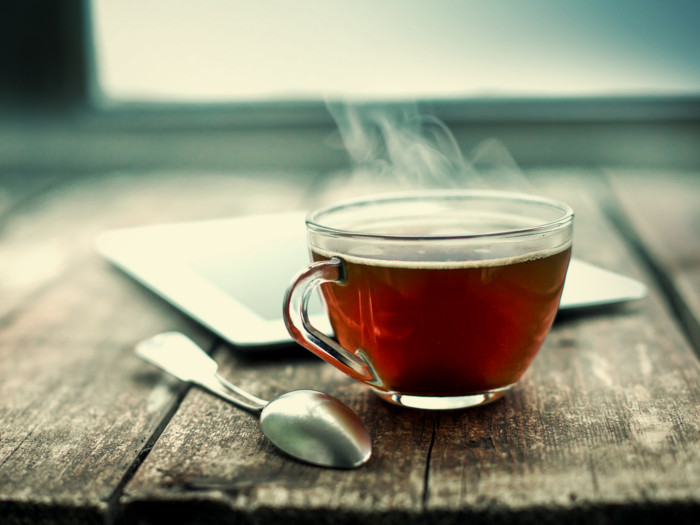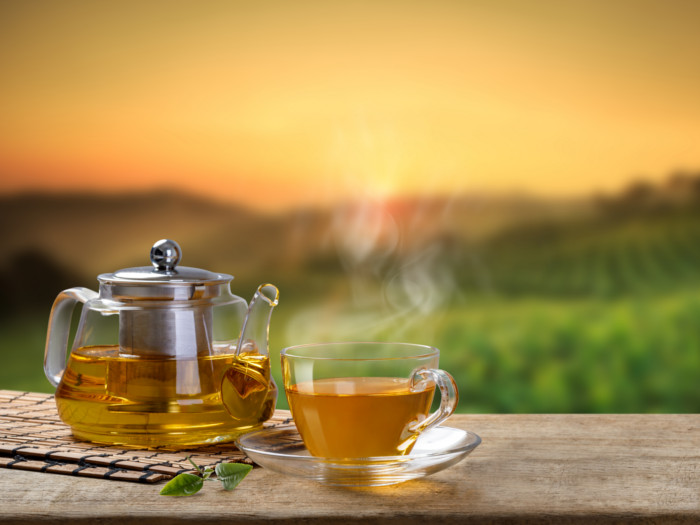The main benefits of mugwort tea might include its ability to possibly ease menstrual pain, improve digestion, reduce anxiety, promote dream retention, help with weight loss efforts, strengthen the immune system, and detoxify the body. This specialty tea might have some side effects, such as allergic reactions and pregnancy complications. The active components in mugwort tea are also very powerful and can be toxic in excessive amounts.
What is Mugwort Tea?
Mugwort tea has been in use for thousands of years in a number of different cultures, ranging from Europe to China, and has long been praised for its medicinal benefits. It was also the key ingredient in brewing beer for centuries before using hops came into favor. Scientifically known as Artemisia vulgaris, the mugwort plant is a tall shrub that is closely related to sunflowers, and its leaves, flowers, and roots are all used for their nutrient content. The specific benefits of mugwort tea are mainly due to the possible presence of flavonoids, triterpenes, and other antioxidant compounds, as well as possibly vitamin A, vitamin K, vitamin E, potassium, iron, calcium, and various B-family vitamins. [1]

Do you like your tea hot or cold? Photo Credit: Shutterstock
Mugwort Tea Benefits
Drinking mugwort tea might be beneficial for people suffering from insomnia, anxiety, painful menstruations, digestive issues, obesity, weak immunity, inflammation, colds, coughs, flu, respiratory infections, and kidney problems.
Possible Weight Loss
With a possible range of B-family vitamins in this herbal tea, you might significantly boost your metabolism and might increase passive fat-burning. This may help with weight loss efforts and might help your body operate at a higher level of energy and efficiency. [2]
Might Help Indigestion
Mugwort tea might have been used to settle the stomach and ease indigestion for generations. It might stimulate the appetite, reduce bloating and cramping, and may counter unpleasant conditions like constipation and diarrhea. Some of the active compounds might also stimulate the production of bile, which can speed digestion. [3]
May Relieve Menstrual Pain
One of the major uses of mugwort tea might be in the treatment of dysmenorrhea, more commonly known as menstrual cramps. It might also stimulate and regulate menstruation and support the body as it changes through menopause. However, it should be avoided by women who are pregnant, as the stimulation of menses might cause miscarriage and trigger premature labor. [4]
May have Diuretic Properties
The possible diuretic properties of mugwort tea mean that it stimulates urination, which can be the body’s best means of eliminating toxins. Mugwort tea might also be linked to cleansing the kidneys and bladder, and maybe reducing the chances of infection and improving function. It can also stimulate sweating, which might further eliminate toxins from the body through the skin. [5]
Immune System
The possible high concentration of vitamin C and other active antioxidants might make this tea an excellent choice for boosting the immune system. Vitamin C might stimulate the production of white blood cells, and also can act as an antioxidant, which can neutralize free radicals that cause inflammation and weaken the body’s defenses. [6]
Might Improve Vision Health
Vitamin A might be found in mugwort tea and may act as a strong antioxidant for vision health. More specifically, this beta carotene-derived vitamin might be able to prevent macular degeneration and slow the development of cataracts. [7]
May Increase the Bone Mineral Density
Traditional beliefs hold that mugwort tea might be an excellent mineralizer for the bones, might help to increase bone mineral density, and may prevent age-related bone disorders, such as osteoporosis. The possible high levels of potassium, iron, and calcium found in this tea can help support this benefit. [8]
Vivid Dreams
For centuries, mugwort tea was praised for its “psychic” and even “hallucinogenic” properties and has long been used to stimulate vivid dreams. It is purportedly able to help you remember dreams as well, and experience those rare lucid dreams that are so few and far between. [9]
Uses and Side Effects
Mugwort tea is used around the world and is naturalized in most countries due to its popularity, but there are also side effects that need to be considered. Mugwort might contain trace amounts of thujone, a toxic substance that can be very dangerous in high concentrations, but only in extremely high concentrations would this be a problem when drinking mugwort tea. That being said, there are other side effects that do occur in certain people.
- Allergies – One of the most common triggers for hayfever is mugwort pollen, so allergic reactions to drinking this tea are not uncommon. If you are normally susceptible to allergies, use this tea in moderation, and if you experience any skin irritation, gastrointestinal distress, or swelling of the throat, lips, or tongue, discontinue use immediately. [10]
- Pregnancy – While the level of thujone found in mugwort tea is low and likely safe for the majority of tea-drinkers, pregnant women should avoid this tea, as thujone is known to stimulate menstruation. Therefore, it might cause miscarriages and pregnancy complications. Breastfeeding women should also avoid drinking this tea, as some of the active components, including thujone, might be passed into the breast milk and might negatively affect the infant.
How Do You Make Mugwort Tea?
Mugwort tea is easy to make at home, and only requires dried, crushed mugwort and hot water, as well as sweeteners or other herbal additions, if desired. The leaves are the most common source of mugwort tea, although some people also prepare a mugwort root tea, or even combine both plant parts for an even more beneficial beverage. If you are growing your own mugwort, cut only the top 1/3 of the plant when harvesting the leaves, and then hang them upside down in bundles

Mugwort Tea Recipe
Ingredients
- 1 oz dried mugwort
- 4 cups water filtered
- 1 tsp honey or sugar if desired
Instructions
- Bring the water to a boil and then add the dried mugwort.
- Allow the mugwort to steep for 5-10 minutes.
- Remove from the stove and allow the mixture to cool for another 2-3 minutes.
- Strain the tea mixture.
- Add honey or sugar, if desired for sweetness, and enjoy!

Notes
Connect With Us
If you have tried this recipe, we would love your feedback in the comments section below. And while we can’t taste it, we would love to see how it turned out! You can connect with us on Facebook or Instagram and tag your picture with #organicfactsrecipes. [11] [12]
Do you wish to share your winning recipes with us? Please click here and fill in the details to get started.

